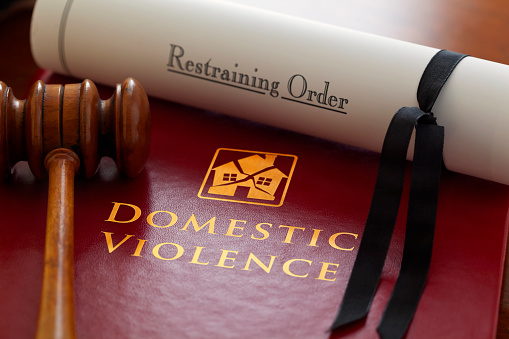
Resource Hub – Articles/Blog
IAFL Global Comparison of LGBT Laws
The International Academy of Family Lawyers, of which Vanessa Mathews is a Fellow, has published a global survey of Lesbian Gay Bisexual Transgender laws (LGBT laws), the results of which can be found here https://www.iafl.com/media/5336/2019-iafl-lgbt-survey.pdf.
The IAFL LGBT Committee stated ‘Laws affecting LGBT people vary greatly by country or jurisdiction. There are now 28 jurisdictions that accept same sex marriage, however gay sex remains illegal in many jurisdictions with the death penalty still applying in 14.
The International Academy of Family Lawyers (“IAFL”) supports all efforts towards full equality of the LGBT community throughout the world and the end to rules that unfairly discriminate against such individuals and, in many countries, criminalize countless couples because of the ones they love. There remains a lot of work to be done.
The work done by some fellows of the IAFL is having a real impact and changing for the better the lives of LGBT people. The LGBT Committee of the IAFL commissioned this survey to capitalize on the knowledge and expertise of some members for the benefit of the IAFL as a whole and the LGBT community.
The individual submissions in this survey are the work of fellows of the IAFL who have kindly donated their time and expertise to answer the same questions as set out below. Each of the contributor’s names and contact details are included.
The LGBT Committee intends that this should be a living resource. We are asking those who have already kindly donated their time to keep us informed as laws change in their jurisdictions. We have detailed submissions from 46 jurisdictions, however, there remains a good number of jurisdictions not covered where the IAFL has fellows. If your jurisdiction is not covered and you feel able to complete a survey, please get in touch with the IAFL.’
Congratulations to the IAFL LGBT committee members for preparing such a comprehensive review of comparative laws.
Property Disputes – Negotiate and Settle ASAP

The importance of family law settlement negotiations cannot be overstated.
In a recent Family Court decision, the judge made a costs order against the wife – that she pay the husband $30,000!
Why?
Because, in the judge’s opinion, the wife had let her anger and distress ‘drive the litigation’ and she had failed to make a ‘meaningful attempt’ to negotiate a settlement, including aggressively rejecting the husband’s settlement offer which ended up being more than the judge awarded her.
So, the wife’s poor attitude to settlement resulted in:
1. A lesser share of the asset pool
2. A costs order.
I wonder how she’s feeling now – even more, angry and distressed?
The moral of the story – negotiate, negotiate, negotiate and settle, settle, settle.
Vanessa Mathews is an accredited family lawyer and mediator.
If you want to reach a negotiated settlement ASAP,
contact Vanessa on 1300 635 529 or [email protected]
A Curly Case for the Commissioner of Taxation

A CURLY CASE FOR THE COMMISSIONER OF TAXATION
CAO & TRONG AND ANOR [2018] FAMILY COURT OF AUSTRALIA
There is no escaping the Family Court and the Commissioner …
The wife filed an application for a final property settlement, including an order that:
1. The husband indemnify her ‘against any liability present or contingent including tax … in respect of E Pty Ltd’; and
2. The husband be responsible ‘for all income tax assessed on income received or deemed to have been received by the husband’.
In the period 2005 -2012, the husband incurred a tax liability of $5,519,200 (unpaid).
The Commissioner of Taxation sought leave to intervene in the property settlement proceedings and an order that the court first makes provision for the payment of tax liabilities to the Commissioner prior to any property distribution to the parties.
Before the matter could be determined by the court, the parties effectively withdrew their respective applications for final property settlement orders.
The wife advised the Commissioner that there was therefore now no basis for it to intervene.
The Commissioner was successful in its application for an order that the court does have the jurisdiction and power to determine a claim against a creditor pursuant to section 79 property settlement proceedings – even if the parties have withdrawn their applications.
The case was run by the Commissioner of Taxation as a ‘test case’ and confirmed that even when the parties themselves no longer seek the assistance of the court to achieve a final property settlement, if the Commissioner has already intervened in those proceedings, the court has jurisdiction to make a final order in its favor – and the liabilities owed to it enforced as an order of the Family Court.
In other words – there’s no avoiding the Commissioner – no matter what agreement the parties themselves might ‘agree on, there’s no way around their obligations to it.
I hope that the year is treating you well – even though it is flying by.
We continue to offer a free 15-minute telephone consultation to your clients in need of family law advice – they can call me on 9804 7991 or email [email protected] to book a time.
And remember, we’re always happy to help you out with your own ‘curly cases’.
Stay in touch,
Vanessa and the Team at Mathews Family Law & Mediation Specialists
Bitcoins and Divorce Property Settlements

I recently had my first encounter with ‘Bitcoins’, a new and modern form of currency that, like savings, are included in the matrimonial asset pool.
‘Bitcoin’ is a form of digital currency.
‘Bitcoin’ can be used for the payment of goods and services.
In this particular case, the value of the ‘bitcoins’ had significantly increased and was considered by the parties to have been an excellent investment. Much of the ‘bitcoin’ market is speculative, and the value of ‘bitcoins’ is therefore very much subject to fluctuation.
The ‘bitcoin’ investment was valued according to the current market value and included in the assets of the marriage to be divided between the parties.
Whether it ‘is bitcoin’, an e-commerce business or an ‘app’ in the development phase, the team at Mathews Family Law & Mediation Specialists, Australia Divorce, is able to provide you with expert legal advice about your family law property settlement entitlements. Contact our team of divorce law lawyers to discuss your financial separation.
De Facto and Same-Sex Couples and Property
De Facto and Same-Sex Couples and Property
Same-sex couples, like all de facto couples, may turn to the courts for orders on division of property, superannuation and maintenance if the relationship breaks down. The rules applying to de facto couples are somewhat different, though, than those applying to legally married couples.
Can all De Facto couples obtain these orders?
No! Couples can receive these orders from the court only if the court is satisfied that the couple meets one of the following criteria:
- The relationship was at least two years long
- The couple has a child together
- One person made significant financial or nonfinancial contributions to the marital property or as a homemaker or as a parent and would be disadvantaged if the order was not granted
- The relationship was registered (in those states and territories where such registration is possible)
Does it matter where you live?
Yes! The laws apply to de facto couples who have a geographical connection with New South Wales, Victoria, Queensland, South Australia, Tasmania, the Australian Capital Territory, the Northern Territory, Norfolk Island, Christmas Island or the Cocos (Keeling) Islands. Geographical connection means that at the time the relationship broke down, the couple lived in one of those states or territories.
A court may still give orders on property division, superannuation and maintenance if:
- The couple lived in one of the above States or Territories during at least one third of their de facto relationship or;
- The person applying to court for the order made substantial financial or nonfinancial contribution in one of the above States or Territories or;
- One of the partners ordinarily lives in one of the above States or Territories at the time the application to court is made.
Does it matter when the relationship broke down?
Yes! The Commonwealth laws allowing de facto couples to divide property came into affect only on August 1, 2009 (and in South Australia only on July 1, 2010). Therefore, in those states and territories where they apply, it’s only for couples whose relationship broke down after those dates. If a relationship broke down before August 1, 2009 (or July 1, 2010 in South Australia), the laws of the particular State or Territory apply, unless both parties request in writing that the new laws apply.
One or both parties must apply for these orders within 2 years of the breakdown of the de facto relationship.
Can a couple make an arrangement on their own?
Definitely! De facto couples can make their own arrangements regarding their property, including debts, assets, superannuation and spousal maintenance.
Financial agreements are covered under Part VIIIA of the Family Law Act of 1975. These agreements may refer to:
- Property and financial resources and how they will be dealt with if the marriage breaks down or;
- The maintenance (financial support) of either of the spouses during and/or after the marriage or;
- Any other matter related to (1) or (2) above
This agreement can be made at any time during the relationship or after it breaks down (but you must apply for the orders within two years of the breakdown – see above) and it can be formalized by the court by applying for a consent order. Once a consent order is made, it has the validity and enforceability of a court order issued by a judge. Both parties must apply for a consent court order for a property agreement by completing the Application for Consent Orders. You do not need to go to court to apply for consent orders.
This financial agreement is only binding if:
- both partners signed it and
- both partners received independent legal advice about the agreement. Partners are not allowed to receive advice from the same lawyer.
For further information on property division in the court see “Property and Money”.
What is a Financial Statement?
A financial statement must be completed when filing an application or responding to an application prior to a property settlement. This form provides for full disclosure of property, liabilities, financial resources, superannuation, employment details and other financial details.
The financial statement takes the form of an affidavit, which is a sworn document of the court. When providing information in an affidavit, you are swearing to the court that it is true. When identifying assets full and frank disclosure should be demonstrated. For these reasons, it is important to complete the form truthfully and accurately.
You also must update the statement if there are any changes in income. In situations where the matter proceeds to court, the form should be as accurate and as up to date as possible before the final hearing.
It is sensible to seek the assistance of a lawyer in completing and updating this form. A lawyer can ensure the form is completed correctly and help to avoid any problems that might arise due to errors in completing the form.
What happens when parties cannot agree about the division of property?
If negotiations fail and you cannot reach an agreement with your former partner about your property settlement then you will need to file an application for property settlement in the appropriate Court.
There are ongoing opportunities for settlement of the proceedings, even after filing an application with the Court. Most applications are settled by consent and without a decision being made by the Court.
If a settlement is not reached, then the Court will decide how the property should be divided after a hearing which follows the four step process.
Urgent applications and Interim Orders
Certain matters may be urgent and an application can be lodged for the matter to be heard quickly by the Court. An urgent application might be for:
- the sale of the former family home,
- the sale of an asset,
- the payment of a liability,
- exclusive occupation of the former family home,
- one partner to continue to make mortgage payments, or
- protection and preservation of assets.











